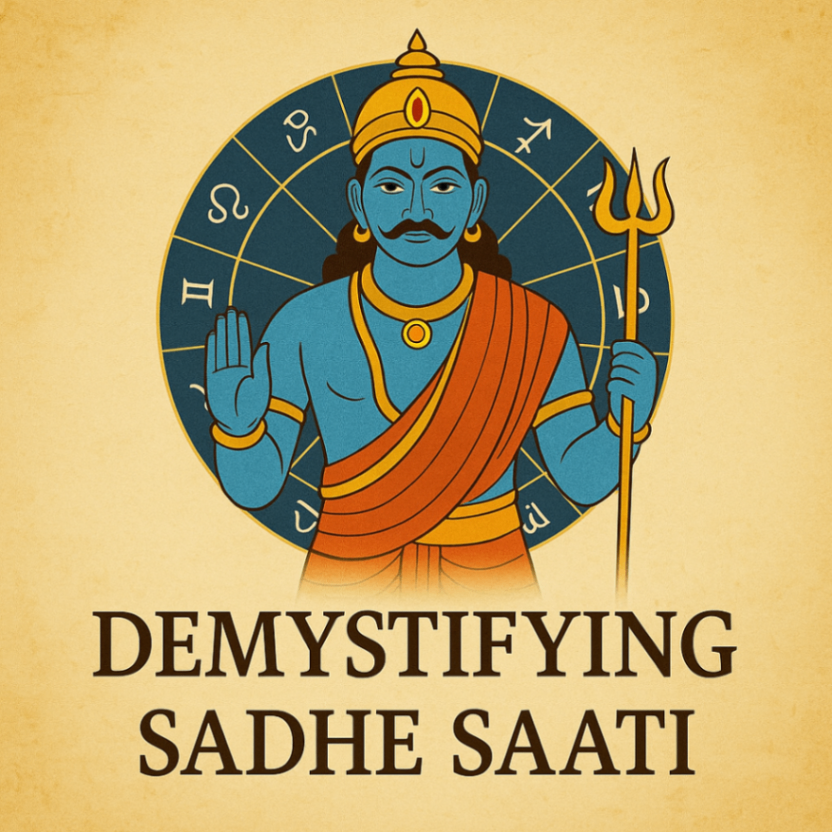In Vedic astrology, understanding the planetary influences goes beyond just knowing which zodiac sign planets are placed in or what conjunctions they are making. One crucial element that plays a significant role in this is the Karan, an integral component of the Panchang. The Panchang is a Hindu calendar and almanac that provides detailed astrological data. Karan specifically deals with the techniques, tools, and approach one uses in their professional life.
The Importance of Karan
Karan becomes essential when it comes to understanding someone's technique or approach towards work. It can be translated to the kind of tools you have, the expertise you possess, and the right set of attitudes and approaches you need to embrace. The influence of Karan can reveal how you handle your tasks and the inherent qualities or flaws you bring into your professional life.
Types of Karan
There are 11 types of Karans, each with its significance and presiding deity. Some of these Karans are fixed, while others are movable. Understanding the type of Karan you have can provide insights into your professional tendencies and the approach you should take in your work life.
1. Bava
The Bava Karan is associated with flowing water, and its presiding deity is Indra, the god of rains and thunderstorms. This Karan indicates inherited qualities or flaws and a respectful lineage. People with this Karan are often respectful towards teaching, family virtues, and traditions. It is recommended for them to honor water around their living space and environment, embrace change, and adapt to modern techniques. Professionally, they may find success in fields related to the ocean, river, sea, and water.
2. Balava
The Balava Karan means "group of children or heirs" and is presided over by Brahma, the creator. This Karan indicates a strong connection to creation, production, manufacturing, and children. People with this Karan may find success in professions that benefit or support children, such as writing children's books or being a hair stylist. They should act with accountability and responsibility rather than childishness.
3. Kaulava
Kaulava Karan translates to "defamation," and its presiding deity is Surya, the sun god. This Karan can bring defamation, betrayal, and stigma through friends. People with this Karan should be very careful about the company they keep, as major falls in life can come through friends. They should avoid people who engage in unproductive or wasteful activities.
4. Taitila
Taitila Karan translates to "the knot" or "abscess," with the presiding deity being Surya. This Karan indicates a tendency to not learn from mistakes and wound or cause pain to others. People with this Karan are good planners but should keep their plans under wraps to avoid becoming targets of envy. They should not pretend or show off too much and must avoid being taken advantage of through sweet talk.
5. Garaja
Garaja Karan translates to "poison" or "sharp," and its presiding deity is Rahu. This Karan indicates an interest in or professional dealing with medicines, chemicals, minerals, or gemstones. People with this Karan are recommended to refrain from offending others and should avoid unnecessary provocation at work.
6. Vanija
Vanija Karan translates to "business, trade, or commerce," with the presiding deity being Lakshmi. This Karan indicates strong business acumen, commercial interest, and trading skills. People with this Karan are suited for fields involving training, coaching, and teaching. They demonstrate strong business talents and are well-advised to engage in entrepreneurship.
7. Vishti (Bhadra)
Vishti Karan, also known as Bhadra, translates to "heavy load and labor," with the presiding deity being Yama, the lord of judgment and justice. This Karan indicates capability for responsibilities and workload but also makes one easily impressionable. People with this Karan should learn to delegate work and not take all responsibilities on their shoulders.
8. Shakuni
Shakuni Karan translates to "bird," with the presiding deity being Kali. This Karan indicates falness in thoughts, adept strategy making, and a tendency to initiate quarrels. People with this Karan are suited for fields driven by omens, astrology, weather forecasting, and future predictions. They should avoid making inflated business plans based on unrealistic foundations.
9. Chatushpada
Chatushpada Karan translates to "four-legged," with the presiding deity being Rakshas. This Karan indicates animalistic habits and demonic nature. People with this Karan should avoid being driven by primal instincts and should elevate their thought processes. They may find success in fields dealing with animals, birds, and heavy vehicles.
10. Nagava
Nagava Karan translates to "snake" or "crawling," with the presiding deity being Serpentine energy. This Karan indicates a dangerous tendency to seek revenge and hide things. People with this Karan should maintain a calm temperament and avoid dangerous activities. They are well-suited for fields involving chemicals, herbs, and addictive substances.
11. Kintughna
Kintughna Karan translates to "oath breaker," with the presiding deity being Vayu (air). This Karan indicates changeable, ungrateful, and unreliable tendencies. People with this Karan should have a calm temperament and are suited for fields involving chemicals, herbs, and addictive substances. The worship of Lord Shiva and empathetic attitudes towards animals and insects will support their professional success.
Conclusion
Understanding the role of Karan in Vedic astrology provides valuable insights into one's professional life. Each Karan has unique attributes and recommendations that can guide individuals in their career paths. By knowing your Karan, you can better align with your inherent qualities and make informed decisions to enhance your professional success.
```



































